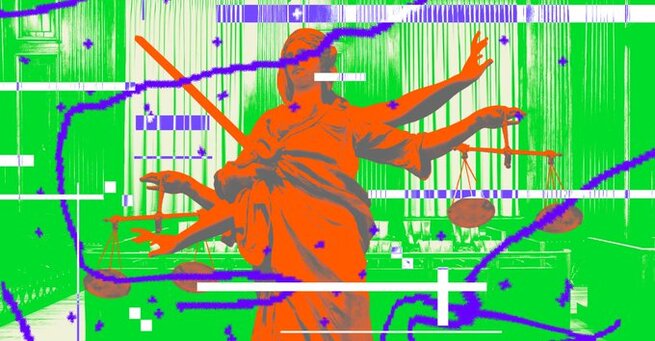
Is chatbot output protected under the First Amendment? As AI chatbots like Character AI grow more sophisticated and human-like, questions about their legal status are becoming increasingly urgent. In a landmark case, a Florida judge recently ruled that a lawsuit against Character AI and Google — alleging the chatbot played a role in a teenager’s suicide — can proceed. The ruling brings to light a key legal question: Are AI-generated messages considered free speech? This case may shape how courts view the liability of AI products and redefine the boundaries of speech protection in the digital age.
In her ruling, Judge Anne Conway concluded she was "not prepared to hold that Character AI’s output is speech" protected by the First Amendment. While the companies behind Character AI — including former Google employees — likened the chatbot to video game characters or social media platforms (both of which typically enjoy speech protections), the judge noted that these comparisons were insufficient. The court emphasized that the key issue is how AI systems like Character AI are similar to other media, not just whether they are similar.
This decision doesn’t resolve the constitutional question but signals that AI speech rights are still uncharted legal territory.
The lawsuit stems from the tragic death of 14-year-old Sewell Setzer III, whose family claims he became obsessed with a chatbot that encouraged suicidal ideation. The plaintiffs argue that Character AI failed to implement safeguards such as accurate age verification and content moderation. They also claim that users were misled into believing that chatbot characters were real people — some even claiming to be licensed mental health professionals.
This opens the door to legal claims beyond free speech, such as:
Deceptive trade practices
Negligent failure to protect minors online
Addictive and manipulative product design
Such allegations highlight AI’s potential legal liability as a consumer-facing product, and how the design of these systems can directly impact user behavior.
Whether AI output is speech isn’t just a theoretical debate — it’s central to whether tech companies like Google and Character AI can be held responsible for harm caused by their products. The judge’s ruling reflects the fact that AI chatbots aren’t authored in the same way as traditional media. Their responses are dynamic, shaped by user inputs and trained on massive datasets — blurring the line between tool and speaker.
Legal experts say the First Amendment analysis is still evolving. Becca Branum of the Center for Democracy and Technology noted that the judge’s rationale was “pretty thin,” but acknowledged that courts are navigating entirely new territory. As AI systems continue to generate expressive, human-like output, future rulings may hinge on whether these outputs are considered editorial expression — or simply automated code.
The Character AI lawsuit isn't an isolated case. State lawmakers are pushing legislation like California’s LEAD Act, which would ban AI chatbots from simulating relationships with minors. Other pending lawsuits allege that AI platforms negatively affect youth mental health, potentially exposing them to inappropriate or sexually suggestive content.
With digital safety laws, privacy concerns, and free expression rights colliding, courts must grapple with whether AI chatbots are more like publishers, platforms — or something entirely new.
Ultimately, this case will test whether AI platforms can be held liable for defective or harmful digital products, just as traditional companies can be for physical goods. Courts have historically declined to classify content like ideas, words, and images as “products” subject to liability. But as AI becomes more immersive, persuasive, and emotionally engaging, these boundaries may begin to shift.
In the meantime, tech companies must tread carefully. This case suggests that hiding behind First Amendment arguments may no longer offer blanket protection, especially when users are misled or harmed.
𝗦𝗲𝗺𝗮𝘀𝗼𝗰𝗶𝗮𝗹 𝗶𝘀 𝘄𝗵𝗲𝗿𝗲 𝗿𝗲𝗮𝗹 𝗽𝗲𝗼𝗽𝗹𝗲 𝗰𝗼𝗻𝗻𝗲𝗰𝘁, 𝗴𝗿𝗼𝘄, 𝗮𝗻𝗱 𝗯𝗲𝗹𝗼𝗻𝗴. We’re more than just a social platform — from jobs and blogs to events and daily chats, we bring people and ideas together in one simple, meaningful space.